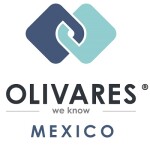It has become common practice for parties of any administrative proceeding to ask the Institute of Industrial Property to require a third party, not related to the proceeding, or even its counterpart, to respond to several questions raised by the offeror of the proof. Such evidence is based on Article 203 of the Industrial Property Law, which states the "requirement to provide information and data" so that the authority can conduct inspection.
However, such a practice may occur in direct violation of IP law and therefore may be a procedural violation by the authority.
Mexican Industrial Property Law (IPL) establishes that in administrative proceedings, all kind of evidence shall be admitted, except testimonial and confessional evidence (Article 192 IPL).
It is established law that testimonial evidence is based on the testimony or declaration of a third party not related to the proceedings, regarding facts related to the proceedings. Confessional evidence is based on the declaration of one of the parties regarding facts related to the proceedings. Moreover, in both cases the declarations are rendered by answering several questions or interrogations that were raised by the offeror of the proof.
In view of the above, it is clear that documentary evidence consisting of the testimony of one of the parties in a proceeding or a third party not related to the proceeding given to the authority, in which it is requested to answer specific questions raised by the offeror of the proof in the form of an interrogation, should necessarily be equated to testimonial evidence or confessional evidence.
Therefore, the offering of a proof in which the offeror is requesting that one of the parties or a third party not related to the proceeding, respond to specific questions that were raised by the offeror and that are linked to facts discussed or related to the proceeding, is not a "requirement to provide information and data", but rather confessional or testimonial evidence, as it contains all the elements of this type of evidence.
In accordance with the foregoing, it is evident that even though this proof is offered under the "requirement to provide information and data" provided by Article 203 of our IPL, it must be considered as testimonial or confessional evidence due to its nature and thus, cannot be admitted by the authority in administrative proceedings.
Alejandra Badillo |
Olivares
Pedro Luis Ogazón No 17
Col San Angel
01000 México DF
Tel: +5255 53 22 30 00
Fax: +5255 53 22 30 01











